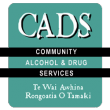Ketamine
Ketamine - Harm reduction tips
- No use is the safest option. Low doses work best and are safer.
- Avoid mixing drugs as the combined effects become more unpredictable and often increase risks.
- Especially avoid using other depressant drugs (e.g. benzos, opiates, alcohol) as the combined sedative effect increases the risk of overdose, choking or losing consciousness.
- Combining with speed or other stimulants puts extra strain on your system, heart, etc. and increases the risk of psychotic reactions similar to PCP.
- If you have freaked out on acid (LSD) or other hallucinogens, it would be safest to avoid K.
- Watch out for each other as it’s easy to injure yourself if you’re numb, unco-ordinated and ‘off the planet’. The chill room (if you can find one) can be a good place to blob out for a while. Or stay home.
- Avoid K if you have heart or breathing problems or are feeling emotionally fragile.
- IV use is very dangerous and likely to produce unconsciousness. It’s safest to avoid injecting K completely but if you’re going to inject, do it intramuscularly not intravenously.
- Don’t share straws or other snorting devices as these may have traces of blood on them and put you at risk of contracting HIV or hepatitis.
- You should avoid food for at least 1.5 hours before taking ketamine. Nausea and vomiting can occur when it's coming on. Staying still can help with this feeling.
- It’s not advisable to use alone. Tell friends if you’re taking K & keep an eye on friends who are.
- It is very important to avoid driving while on ketamine.
If you think you or a friend has taken an overdose of ketamine, seek help immediately. Call an ambulance and tell them what has been taken so that medical staff can help. You won’t get into trouble for this and you may minimise or prevent any serious long-term damage or death.
